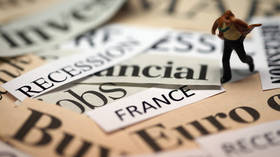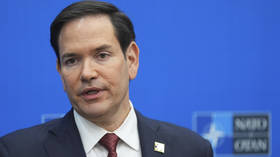Most investors expect EU recession – survey

Some 86% of global investors predict the EU will enter a recession within the year, according to a survey of fund managers conducted by Bank of America and published on Tuesday. The figure represents a stark increase from last month, when just 54% of respondents made a similar prediction.
The asset managers’ gloomy forecast wasn’t limited to the bloc, however. A record 79% of respondents with $800 billion assets under management expect the entire world’s economy to weaken over the course of the year. Half of those suggested the suffering would be serious enough to be classed as a recession.
Among European respondents, 70% said “demand destruction” – a situation in which skyrocketing prices cause individuals and businesses to avoid spending their money – would dominate the financial character of the next few months. They argued this would cut inflation – currently sitting at a record 8.6% for the year up to June – while encouraging central bankers to raise interest rates.
The poll also revealed a shift in opinion regarding central bankers, who were named by 32% of respondents last month as the primary risk to financial markets. This month, only 17% pointed to central bankers as the cause of the continent’s economic misfortunes.
Should the European Central Bank move forward with efforts to cut inflation by raising interest rates, it would be the first rate hike in over 10 years. While some countries – such as the Baltic states with high inflation – have pushed the central bank to hike rates by 50 basis points, ECB President Christine Lagarde has suggested it would move more gradually, increasing rates by 25 points in July and then upping them further in September if inflation remained at unsustainable levels.
However, she more recently acknowledged there were “clearly conditions in which gradualism would not be appropriate” in which the bank should “withdraw accommodation more promptly to stamp out the risk of a self-fulfilling spiral.”
The EU’s economic problems began piling up in earnest during the self-imposed economic shutdowns of the Covid-19 pandemic and have continued to grow ever since, exacerbated by the Ukraine crisis and anti-Russia sanctions.














